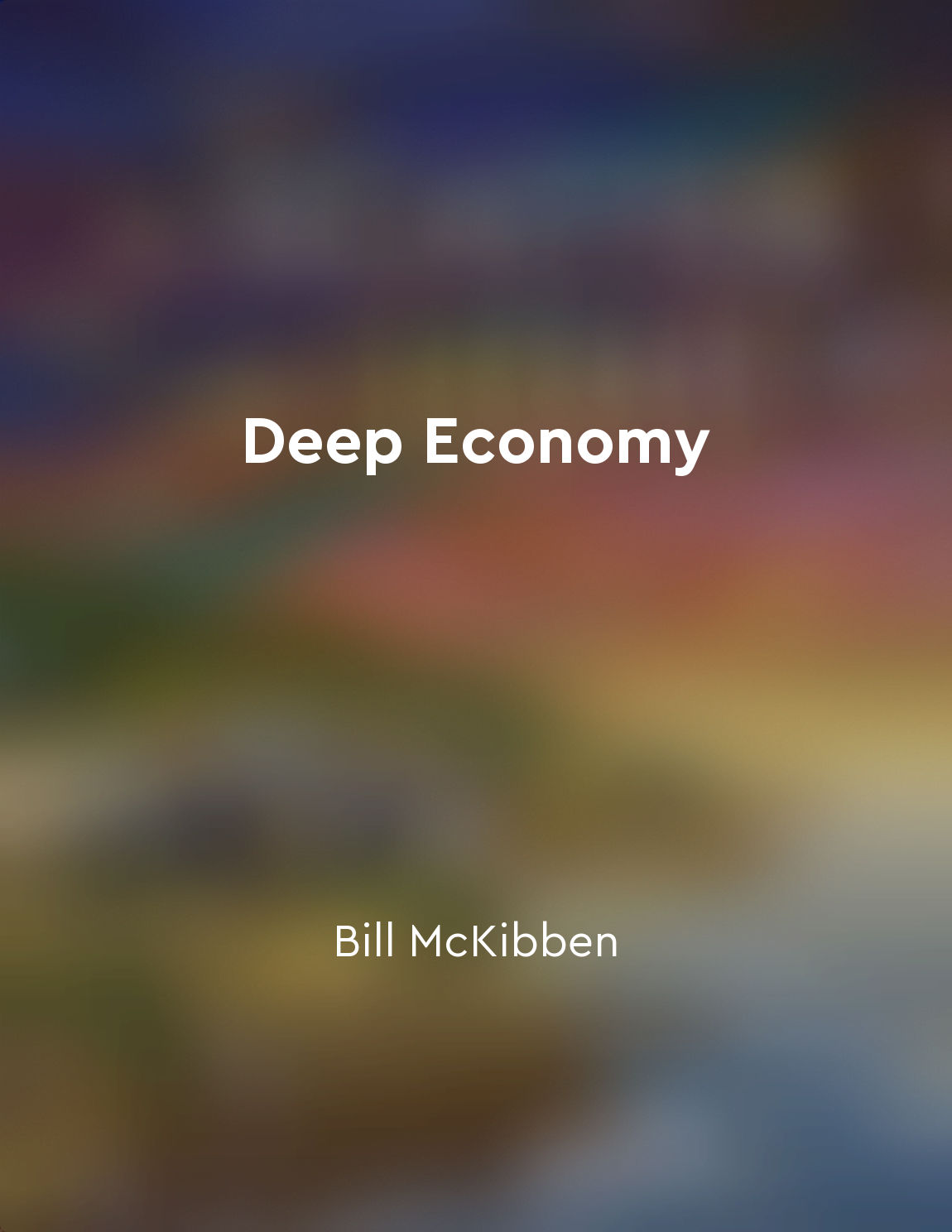This lack of social capital has negative effects on society from "summary" of Bowling Alone by Robert D. Putnam
The erosion of social capital in our society is like a silent killer, slowly weakening the bonds that hold us together. It may not be as immediately noticeable as a physical disaster or economic collapse, but its effects are just as damaging, if not more so. When people no longer trust or connect with one another, when they no longer feel a sense of belonging to a larger community, the very fabric of society begins to unravel. This lack of social capital has far-reaching consequences that extend beyond individual well-being to the very foundation of our democracy. Social capital is the glue that holds communities together, fostering trust, cooperation, and civic engagement. Without it, people become more isolated, more distrustful, and less likely to participate in the political process. This leads to a vicious cycle where people feel disenfranchised and disconnected from their fellow citizens, further eroding the bonds that hold us together. The decline of social capital can be seen in the dwindling membership of community organizations, the decline in voter turnout, and the erosion of trust in institutions. People are less likely to join clubs, volunteer their time, or even engage in simple acts of neighborly kindness. This not only weakens the social fabric of our communities but also has real-world consequences for our health, safety, and well-being. Without a strong foundation of social capital, society becomes more fragmented, more polarized, and more prone to conflict. People retreat into their own echo chambers, surrounded by like-minded individuals who reinforce their own beliefs and prejudices. This lack of social cohesion makes it harder to find common ground, compromise, and work together to solve the pressing issues of our time. In the absence of social capital, individuals are left to fend for themselves, relying on their own resources and networks to navigate an increasingly complex and uncertain world. This leads to a sense of alienation and isolation, as people struggle to find meaning and connection in a society that values material wealth and individual achievement above all else.- The erosion of social capital threatens the very bedrock of our democracy and our society. It weakens our ability to come together as a community, to address the challenges that face us, and to build a more just and equitable society for all. It is only by recognizing the importance of social capital and actively working to rebuild it that we can hope to create a more resilient and cohesive society for future generations.
Similar Posts
The social contract requires ongoing commitment
The social contract is a fundamental agreement that binds individuals to the collective will of the community. It is a pact tha...
Community
Community in 'The Unwinding' is portrayed as a complex and multifaceted entity that shapes the lives of individuals in profound...

Smallscale agriculture is vital
In a world dominated by industrial agriculture, the significance of small-scale farming often gets overlooked. However, as we f...
Social norms are shaped by the strength of social networks
The strength of social networks plays a crucial role in shaping social norms. When individuals are connected through strong soc...
This lack of social capital has negative effects on society
The erosion of social capital in our society is like a silent killer, slowly weakening the bonds that hold us together. It may ...
Idea: Public opinion influences social change
In examining the relationship between public opinion and social change, it becomes evident that the former plays a crucial role...

